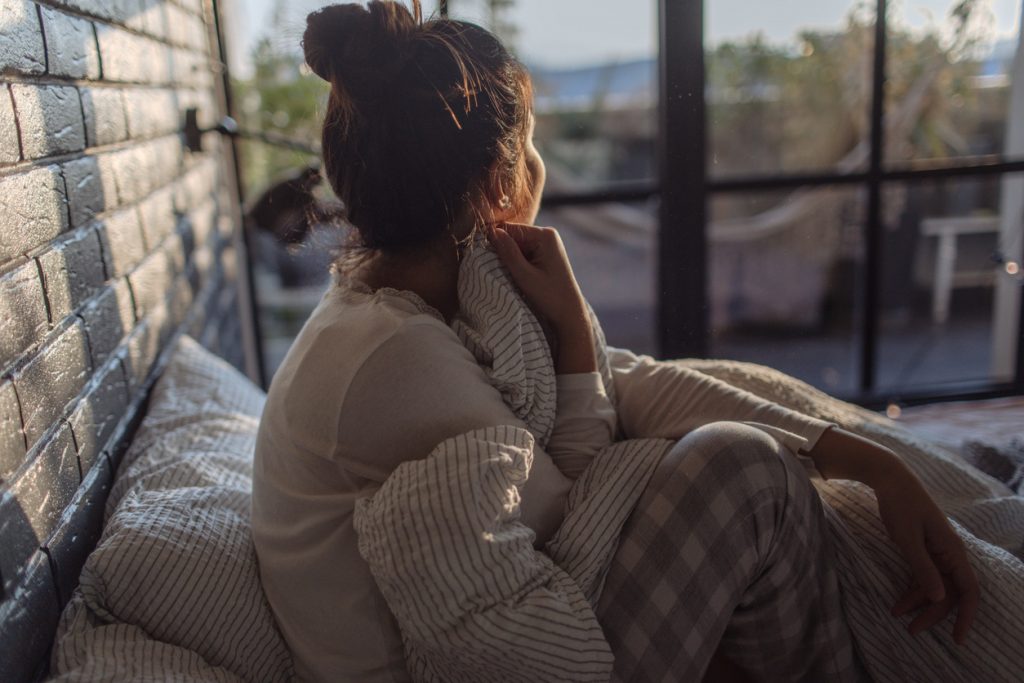Is Waking Up At 4 am The Only Way To Get Things Done?

A few months ago, in my quest to find more time in the day as a busy parent, I discovered the magic of a still and dark house at 4 am.
With an already early start to the day due to an hour and a half commute to work, plus the need to get home early-ish for my three young kids, getting up even earlier seemed impossible to me. Until the day that it didn’t. It was one evening, when I was more tired than usual, that I purposely went to bed immediately after my kids were tucked into theirs, rather than staying up for some much-coveted me time.
I had set my alarm for 4 am that next morning and, to my huge surprise, woke up refreshed, rested and a little bit giddy at the amount of time I had to myself. Not even my dog would get up that early to come find me.
I soon realized I was far from original in unlocking the secret to feeling productive. The CEO of Apple, Jennifer Aniston, Michelle Obama—they all rise at an ungodly hour in order to find time for themselves, and they’re not alone. For a while, it was lauded as the secret to success. Waking up early means you can get a head start on your day without any distractions or interruptions.
Now, however, the story is shifting in favour of sleep.
According to the National Sleep Foundation in the United States, “most adults know that getting a good night’s sleep is important, but too few of us actually make those eight or so hours between the sheets a priority. For many of us with sleep debt, we’ve forgotten what “being really, truly rested” feels like.”
This had become true for me. Night after night, I would feel tired but insisted on staying up to sit in front of the television, Netflix on in the background while I also scrolled through social media mindlessly on my phone. I would force myself to go to bed when it was already too late and wonder why I woke up feeling tired and unaccomplished the next day. I didn’t get anything done and I didn’t feel like I had time to unwind either.
But was getting up earlier really the solution?
Because there are so many different factors for each individual adult, research can’t really pinpoint an exact amount of sleep needed. It’s important to pay attention to your own individual needs by self-assessing how you feel after certain amounts of sleep. However, The National Sleep Foundation does recommend a minimum and maximum range for health—and experts agree.
Recommended Sleep Range for Adults
According to the NSF, adults from ages 18 to 64 should be getting between 7 to 9 hours of sleep a night.
I was falling just under at around 6 and a half hours of sleep, but I felt rested each day, only fatigued and a little worn out by the kids’ bedtime at night.
Yet, I was surprised to discover that even if you’re getting 8 hours of sleep, waking up very early could potentially still be an issue. In June of last year, the New York Times reported on the topic, finding that “No matter how much sleep you get, if you’re not wired for rising at the hour of the wolf, and most of us aren’t, according to many sleep specialists, messing with that normal rhythm is still detrimental.”
You have to be consistent with your schedule and rhythm, in other words. If you’re going to get up at 4 am during the week, you should probably get up early—and go to bed early—on weekends, too.
Why does it feel like sleep is getting harder as I get older?
Because it is. In fact, according to Good Night Sleep Site, a sleep consulting business made up of mothers, teachers, social workers, pediatric registered nurses, parenting educators, and behavioural analysts, research shows that sleep changes as we age. “We lose deep sleep at a rate of about 2% a decade, starting in your 30s and lasting up until about age 60.” Changes to your sleep during this time include more restlessness, waking easily and often at night, and feeling less refreshed in the morning.
As you get older, sleeping less can take a toll on weight gain and metabolic health. Along with your hormonal changes, we now find ourselves with extremely busy daily schedules, leaving little time for quality sleep or regular exercise.
So, it seems that you can get more sleep, but get less done, or get up early and risk your health. Hmm.
In the end, almost all experts agree that both balance in your life and rest are important. The key is finding what works for you. Sleep shouldn’t be seen as an obstacle to being productive but as part of our essential needs.
It’s less about what time you get up each day and more about how you carve out the time you need for yourself, while also getting the sleep your body needs.














